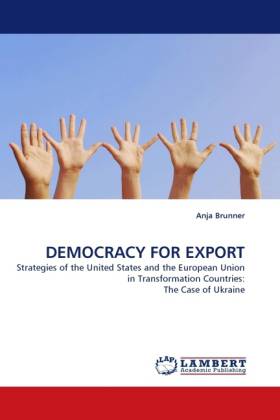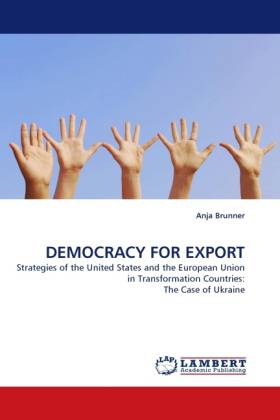
Bedankt voor het vertrouwen het afgelopen jaar! Om jou te bedanken bieden we GRATIS verzending (in België) aan op alles gedurende de hele maand januari.
- Afhalen na 1 uur in een winkel met voorraad
- In januari gratis thuislevering in België
- Ruim aanbod met 7 miljoen producten
Bedankt voor het vertrouwen het afgelopen jaar! Om jou te bedanken bieden we GRATIS verzending (in België) aan op alles gedurende de hele maand januari.
- Afhalen na 1 uur in een winkel met voorraad
- In januari gratis thuislevering in België
- Ruim aanbod met 7 miljoen producten
Zoeken
DEMOCRACY FOR EXPORT
Strategies of the United States and the European Union in Transformation Countries: The Case of Ukraine
Anja Brunner
Paperback | Engels
€ 80,45
+ 160 punten
Omschrijving
This study contrasts European and American strategies for building democracy abroad; it is argued EU and US approaches differ not only ideologically but also politically. On one hand, the United States acts out of a genuine commitment to fostering civil society and democratic change from below, and European thinking tends to approach democracy promotion in terms of strengthening state capacity. On the other hand, the United States, being a political and economic superpower, can effectively employ negative strategies such as sanctions and negative conditionality, and the EU, as a civilian power, is capable of exerting normative influence, but lacks effective leverage in relations with third countries without a membership perspective. Both approaches can be complementary, but they are best suited for different collaboration partners and have varying impacts as well as contextual applicability. Both claims are supported by a detailed account of Western involvement in Ukraine's Orange Revolution.
Specificaties
Betrokkenen
- Auteur(s):
- Uitgeverij:
Inhoud
- Aantal bladzijden:
- 140
- Taal:
- Engels
Eigenschappen
- Productcode (EAN):
- 9783843369671
- Verschijningsdatum:
- 10/11/2010
- Uitvoering:
- Paperback
- Afmetingen:
- 152 mm x 229 mm
- Gewicht:
- 213 g

Alleen bij Standaard Boekhandel
+ 160 punten op je klantenkaart van Standaard Boekhandel
Beoordelingen
We publiceren alleen reviews die voldoen aan de voorwaarden voor reviews. Bekijk onze voorwaarden voor reviews.









